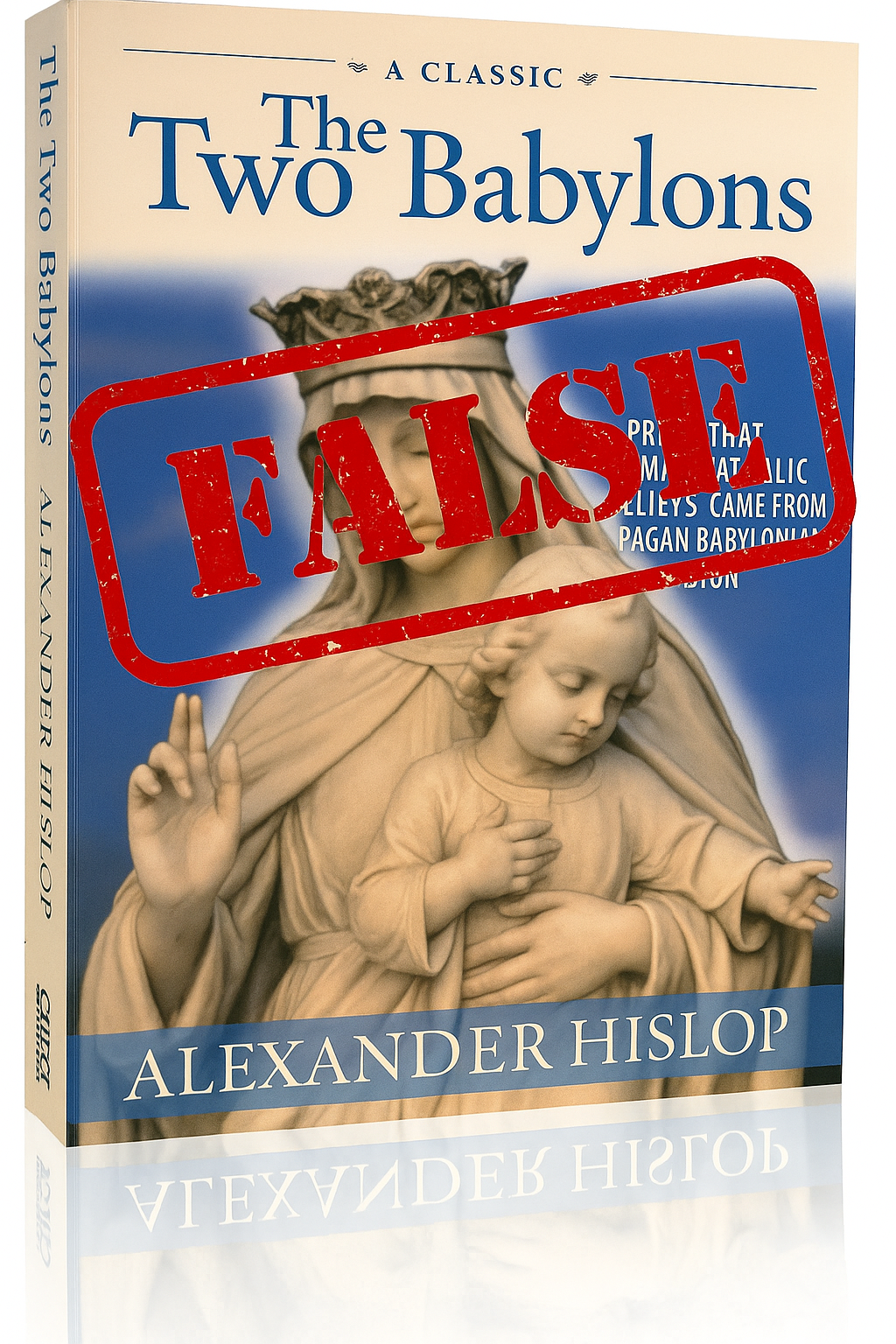7 things the Lord hates (spoiler: questioning doctrine isn't one of them)

By now, most people (in Christian circles, at least) will have heard about the Jars of Clay controversy. For those that are thinking "how on earth could there be controversy over some jars?" let me clarify: they are a contemporary Christian music band. The controversy is because the frontman, Dan Haseltine, tweeted some thoughts on the topic of gay marriage.
Shocking, I know.
This is what started it all:
The treatment of people as less than human based on the color of skin is crazy... Or gender, or sexual orientation for that matter.
— Dan Haseltine (@scribblepotemus) April 21, 2014
Not meaning to stir things up BUT... Is there a non-speculative or non "slippery slope" reason why gays shouldn't marry? I don't hear one.
— Dan Haseltine (@scribblepotemus) April 21, 2014
I'm trying to make sense of the conservative argument. But It doesn't hold up to basic scrutiny. Feels akin to women's suffrage.
— Dan Haseltine (@scribblepotemus) April 21, 2014
Plus many, many, more tweets as time went on, with the whole twitter/blogosphere alight with this madness. Apparently even some radio stations had pulled Jars of Clay's music because of this assumed support of gay marriage by Dan, and by association, the band too. Dan has since issued an apology on his blog, and expanded on his thoughts in ways which the twitter character limitations wouldn't allow him to previously.
But as much of a hot-button topic as gay rights within the Church is, it is not what I want to talk about now. No, what got me was the way in which the Christians reacted to this news about JoC and the tweets, and how all the bloggers etc. exploded with articles with some hints of condemnation.

Though I do agree that twitter probably wasn't the best place to voice such questions and thoughts, which I do think were genuine and not merely provocative, that doesn't excuse the way in which people responded.
It all comes across as very judgemental, mean and downright nasty in some comments. Completely Christ-like behaviour. Obviously.
The whole things just comes across very much with the tone of "you can't question this belief or that doctrine"; but which beliefs and doctrines — well that's entirely up to whoever you speak to! Though in recent times, questioning issues relating to homosexuality — whether secular or Christian related thoughts, can get you in some hot water with certain groups and people.
Which is exactly what happened with Jars of Clay. Just take a browse through Dan's twitter feed or the Jars of Clay Facebook page to see the reactions to his thinking out loud.
I can't embed Facebook comments, but to give an idea of some responses I'll post a few screenshots which I've taken, and some which Patheos also took when they covered the story:
It all comes across as very judgemental, mean and downright nasty in some comments.
And my "favourite" has got to be the call to go and basically commit suicide using a veiled reference to Luke 17:2 –
Since writing this will probably come across to some as though I'm not "toeing the party line" on the issue, this comment pretty much sums up my sentiments on the "gay issue" as far as this post will go:
Whether you agree, disagree, call it sin or not – the fact of the matter is is that the laws of the land (whichever land you happen to be in) are not based on our beliefs. You may say the Bible is your ultimate authority in and for life, but that doesn't make it so for everyone else, and especially not for those in government who dictate the laws. Sometimes I think the sooner we realise that, the better off the Church as a whole would be.
It was only last week I was writing a similar post about the online actions of Christians and how unloving they were in regards to Google not posting an Easter themed "doodle". This week it's the similarly unloving actions and attitudes towards someone who dared to question. It's not like it was asking or seeking heretical doctrine, but simply trying to get to the root of an issue. As a friend of mine also blogged last week, "Could your Evangelical Church be Unhealthy?" he addressed the issue of cult-like mindsets that can creep into some churches. Point 5 especially comes to mind now: "SACRED SCIENCE - The ideology is given special/sacred status and cannot be critiqued."
If no one is allowed to question and seek, then how can anyone come to the Faith fully and completely? Christianity is not "blind faith" (as much as some would try to say otherwise), but is based on the teachings and actions of a real man and was spread by the testimonies and accounts of eye-witnesses. Even before Jesus, the Psalmist declared, "O taste and see that the Lord is good; happy are those who take refuge in him" (Ps 34:8) — that's a challenge right there to do something, to actually try your faith and see that God is there and real. This faith is a demonstrable one.
But I digress. As to the title of this post:
Proverbs 6:16-19
There are six things that the Lord hates,
seven that are an abomination to him:
haughty eyes, a lying tongue,
and hands that shed innocent blood,
a heart that devises wicked plans,
feet that hurry to run to evil,
a lying witness who testifies falsely,
and one who sows discord in a family.
From the way Christians are reacting to things like this, whether online or not, I'm sure their attitudes will fall into at least three of these "things that the Lord hates."
- A lying tongue – As far as I could see online, the Jars of Clay frontman hadn't expressly stated whether he supported SSM (Same Sex Marriage) or not, but was just asking about the arguments surrounding the topic, yet many posts that I did see were saying that he'd come out as supporting and/or advocating for gay marriage!
- Haughty eyes– Now, I had to look up this word to make sense of it. It is defined as "arrogantly superior and disdainful." A quick skimming over the comments on Facebook and Twitter will show you the amount of arrogance and disdain on display.
- One who sows discord in a family – If we are meant to be all brothers and sisters together in Christ, then it follows that we are all one big family united by Spirit and not blood. The malicious attacks against someone for asking questions is definitely not uniting and is sowing plenty of discord.
Yes, Dan is a public figure and a Christian, so what he says and does has more far-reaching consequences than maybe our own non-celebrity lives do, but that doesn't mean we ought to verbally crucify the man, rightly or wrongly (plus it's not the first time things like this have happened, even on a smaller scale). While I do think that public figures should probably be answered publicly if they are acting against the Body of Christ on a public platform – there are better and more loving ways to do it.
We need to be more aware of our actions as Christians, and "abstain from all appearance of evil" (1 Thess 5:22). As Jesus said, "You will know them by their fruits" and if you have love for one another, "everyone will know that you are my disciples" (Matt 7:16; Jn 13:35).
There are ways to discuss and correct people who have wronged you (cf. Matt 18:15; Galatians 6:1), or who you think are saying/teaching the wrong things (cf. Acts 18:26), or times to just listen and wait (cf. James 1:19-20; Proverbs 18:13).
The Kingdom of God is counter-culture. That means the ethics and morals often go against what secular culture says and approves of. Just look at the Sermon on the Mount in Matthew 5-7. Everything Jesus says to do it practically the opposite of what you'd expect or want to do!
You've got no food – don't worry and trust God.
Someone slaps you in the face – offer them another go.
Forced to do something for another – carry on beyond expectations.
Persecuted and hated by people – go and pray for them instead of retaliating.
And of course, above all, love your neighbour. That sums it all up. Laws and politics may (and probably often) do disagree with our Christian ethics, and while there could be some noble causes to change certain laws which do oppress, endanger and strip people of equality and justice, as followers of Jesus; as those who claim to be born-again, Spirit-filled, as having the mind of Christ – the only laws we should fight to change are those which go against justice and equality for all.
Our lives, as those lived out by following the teachings and examples of Jesus, by making the Kingdom of Heaven a reality on Earth, should influence and change our immediate environment and surroundings – through the power of the Spirit in us and by love.
I've said what the Lord hates, but what does He love? "For I the Lord love justice, I hate robbery and wrongdoing" (Isa. 61:8)
Isa. 1:16-17
Wash yourselves; make yourselves clean;
remove the evil of your doings
from before my eyes;
cease to do evil,
learn to do good;
seek justice,
rescue the oppressed,
defend the orphan,
plead for the widow.
Deut. 10:17-18
For the Lord your God is God of gods and Lord of lords, the great God, mighty and awesome, who is not partial and takes no bribe, who executes justice for the orphan and the widow, and who loves the strangers, providing them food and clothing.
James 1:27
Religion that is pure and undefiled before God, the Father, is this: to care for orphans and widows in their distress, and to keep oneself unstained by the world.
This is the nature of God. If our actions don't match those which Jesus taught and displayed, if they don't match up with this sense of equal justice for all, then can those actions really come from the Spirit of God who is meant to motivate and move us?
And before your thoughts are dragged back to the issue of Same Sex Marriage...
1 Cor 5:12
For what have I to do with judging those outside? Is it not those who are inside that you are to judge?
So I don't care what cause you lobby for or against, if it isn't something which will ultimately display the love and justice of Christ to others, then of what use is it?
Leave a comment Like Back to Top Seen 961 times Liked 0 times
Enjoying this content?
Support my work by becoming a patron on Patreon!
By joining, you help fund the time, research, and effort that goes into creating this content — and you’ll also get access to exclusive perks and updates.
Even a small amount per month makes a real difference. Thank you for your support!
Subscribe to Updates
If you enjoyed this, why not subscribe to free email updates and join over 853 subscribers today!
My new book is out now! Order today wherever you get books
Recent Posts
Luke J. Wilson | 20th May 2025 | Islam
You are not alone. Around the world, many Muslims — people who already believe in one God, pray, and seek to live righteously — are drawn to know more about Jesus (ʿĪsā in Arabic). Some have heard He is more than a prophet. Some have sensed His presence in a dream or vision. And some simply long to know God more deeply, personally, and truly. So what does it mean to become a Christian? And how can you take that step? This guide is for you. 1. What Christians Believe About God and Jesus ➤ One God, Eternal and Good Christians believe in one God — the same Creator known to Abraham, Moses, and the prophets. But we also believe God is more personal and relational than many realise. In His love, He has revealed Himself as Father, Son (Jesus), and Holy Spirit — not three gods, but one God in three persons. ➤ Jesus Is More Than a Prophet Muslims honour Jesus as a great prophet, born of the virgin Mary. Christians also affirm this — but go further. The Bible teaches that Jesus is the Word of God (Kalimat Allāh), who became flesh to live among us. He performed miracles, healed the sick, raised the dead — and lived without sin.Jesus came not just to teach but to save — to bring us back to God by bearing our sins and rising again in victory over death. 2. Why Do We Need Saving? ➤ The Problem: Sin All people — no matter their religion — struggle with sin. We lie, get angry, feel jealous, act selfishly, or fail to love God fully. The Bible says: “All have sinned and fall short of the glory of God.” (Romans 3:23) Sin separates us from God. And no matter how many good deeds we do, we can never make ourselves perfect or holy before Him. ➤ The Solution: Jesus Because God loves us, He did not leave us in our sin. He sent Jesus, His eternal Word, to live as one of us. Jesus died willingly, offering His life as a sacrifice for our sins, then rose again on the third day. “But God proves his love for us in that while we still were sinners Christ died for us.” (Romans 5:8) 3. How Do I Become a Christian? Becoming a Christian is not about joining a Western religion. It’s about entering a relationship with God through faith in Jesus Christ. Here is what the Bible says: ✝️ 1. Believe in Jesus Believe that Jesus is the Son of God, that He died for your sins, and that He rose again. “If you confess with your lips that Jesus is Lord and believe in your heart that God raised him from the dead, you will be saved.” (Romans 10:9) 💔 2. Repent of Your Sins Turn away from sin and ask God to forgive you. This is called repentance. It means being truly sorry and choosing a new way. “Repent therefore, and turn to God so that your sins may be wiped out.” (Acts 3:19) 💧 3. Be Baptised Jesus commands His followers to be baptised in water as a sign of their new life. Baptism represents washing away your old life and rising into a new one with Jesus. “Repent and be baptised every one of you in the name of Jesus Christ so that your sins may be forgiven.” (Acts 2:38) 🕊️ 4. Receive the Holy Spirit When you believe in Jesus, God gives you the Holy Spirit to live within you, guiding you, comforting you, and helping you follow His will. “You received the Spirit of adoption, by whom we cry, ‘Abba! Father!’” (Romans 8:15) 🧎 5. Begin a New Life As a Christian, you are born again — spiritually renewed. You begin to grow in faith, love, and holiness. You read the Bible, pray, fast, and gather with other believers. Your life is no longer your own; you now live for God. 4. What Does a Christian Life Look Like? Jesus said: “If anyone wants to become my followers, let them deny themselves and take up their cross and follow me.” (Matthew 16:24) This means: Loving God with all your heart Loving your neighbour — even your enemies Forgiving others ...
Luke J. Wilson | 05th May 2025 | Politics
When we think about David and Saul, we often focus on David’s rise to kingship or his battle with Goliath. But hidden within that story is a deep lesson for today’s generation about leadership, resistance, and the power of revolutionary love. At a recent youth training event (thanks to South West Youth Ministries), I was asked how I would present the story of David and Saul to a Christian teenage youth group. My mind turned to the politics of their relationship, and how David accepted Saul’s leadership, even when Saul had gone badly astray. David recognised that Saul was still God’s anointed king — placed there by God Himself — and that it was not David’s place to violently remove him. Gen-Z are more politically aware and engaged than previous generations, and are growing up in a world where politics, leadership, and social issues seem impossible to escape. We live in a world where political leaders — whether Trump, Putin, Starmer, or others — are often seen as examples of failed leadership. It’s easy to slip into bitterness, cynicism, or violent rhetoric. These kids are immersed in a culture of activism and outrage. As Christians, we’re called to care deeply about truth and justice and approach leadership differently from the world around us (Hosea 6:6; Isaiah 1:17; Micah 6:8). The story of David and Saul offers pertinent lessons for our modern lives. Respect Without Endorsement David’s respect for Saul was not blind loyalty. He did not agree with Saul’s actions, nor did he ignore Saul’s evil. David fled from Saul’s violence; he challenged Saul’s paranoia; he even cut the corner of Saul’s robe to prove he had the chance to kill him but chose not to. Yet throughout, David refused to take matters into his own hands by force. Why? Because David understood that even flawed authority ultimately rested in God’s hands, he trusted that God would remove Saul at the right time. This is echoed later in the New Testament when Paul writes in Romans 13 that “there is no authority except from God, and those authorities that exist have been instituted by God”, something even Jesus reminded Pilate of during his trial (John 19:10–11). In other words, even flawed leadership can be part of God’s bigger plan, whether for blessing or discipline. Even when leaders go bad, our call as believers is to maintain integrity, respect the position, and resist evil through righteousness — not rebellion. David and Saul: A Lesson in Respect and Restraint Saul was Israel’s first king — anointed by God but later corrupted by pride, fear, and violence. David, chosen to succeed him, spent years running for his life from Saul’s jealous rage. One day, David found Saul alone and vulnerable in a cave. His men urged him to strike Saul down and end the conflict. But David refused: “I will not raise my hand against my lord; for he is the Lord’s anointed.” (1 Samuel 24:10) Instead of killing Saul, David cut off a piece of his robe to prove he could have harmed him, but didn’t. In doing so, he demonstrated a real form of nonviolent resistance. He stood firm against Saul’s injustice without resorting to injustice himself, and acted in a way that could try to humble Saul instead. Peacemaking Is Not Passivity There is a modern misconception that peacemaking means doing nothing and just letting injustice roll all over us. But true biblical peacemaking is not passive; it actively resists evil without becoming evil. Interestingly, David’s actions toward Saul also foreshadow the type of nonviolent resistance Jesus later taught. When Jesus commanded His followers to turn the other cheek, go the extra mile, and love their enemies, he was not calling for passive submission but offering what scholar Walter Wink describes as a “third way” — a bold, peaceful form of resistance that uses what he calls “moral jiu-jitsu” to expose injustice without resorting to violenc...
Luke J. Wilson | 21st April 2025 | Easter
Over the years, I’ve encountered many Christians who’ve quoted from Alexander Hislop’s The Two Babylons as if it were a solid historical resource. The book claims that the Roman Catholic Church is not truly Christian but rather a continuation of ancient Babylonian religion. It’s self-assured and sweeping, and for many people, it seems to explain everything, from Marian devotion to Lent and Easter, to Christmas, as rooted in paganism. But is it accurate? In short: no, it really isn’t. Hislop’s work is a classic example of 19th-century pseudohistory — a polemical piece, written to prove a point, not to explore any historical truth. Flawed Methods and Wild Claims Hislop argues that most Catholic practices — from the Mass and clerical robes to festivals like Christmas and Easter — were somehow borrowed from Babylonian religion. The problem being that Hislop doesn’t rely on primary sources or credible historical data. Instead, he draws connections based on word similarities (like Easter and Ishtar) or visual resemblances (like Mary and child compared with mother-goddess statues from ancient cultures). But phonetic resemblance isn’t evidence, and neither is visual similarity. For example, if I say “sun” and “son” in English, they may sound alike, but they aren’t the same thing. That’s the level of reasoning at work in much of The Two Babylons. Hislop often lumps together completely different ancient figures — Isis, Semiramis, Ishtar, Aphrodite — as if they were all just variations of the same deity. He then tries to say Mary is just the Christian version of this pagan goddess figure. But there’s no credible evidence for that at all. Mary is understood through the lens of Scripture and Christian theology, not through pagan myth. The earliest depictions of Mary and the Christ-child date back to the second century and do not resemble any of the pagan idols. But, again, the common accusations are based on superficial similarities of a woman nursing a child. That’s going to look the same no matter who or what does that! Oldest depiction of Mary. Dura-Europos Church, Syria, 2nd century What About Lent and Tammuz? One of Hislop’s more popular claims is that Lent comes from a Babylonian mourning ritual for the god Tammuz, mentioned in Ezekiel 8:14. He argues that early Christians borrowed the 40-day mourning period and just rebranded it. But this doesn’t line up with the evidence. Lent developed as a time of fasting and repentance leading up to Easter — especially for new believers preparing for baptism. The number forty comes from Scripture: Jesus’ forty days in the wilderness, Moses’ fast on Sinai, and Elijah’s journey to Horeb. Church Fathers like Irenaeus and Athanasius saw it as a time for self-denial and spiritual renewal — not mourning a pagan god. Yes, there are pagan festivals that involve seasonal death and rebirth stories. But similarity does not mean origin. If that logic held, then even Jesus’ resurrection would be suspect because pagan cultures also told resurrection-like stories. Yet the gospel stands apart — not because of myth but because of history and revelation. Why Hislop’s Work Persists Even though The Two Babylons is poor scholarship, it’s unfortunately had a long shelf life. That’s partly because it appeals to a certain kind of suspicion. If you’re already sceptical about the Catholic Church, Hislop offers an easy explanation: “It’s all pagan!”. But history isn’t ever that simple. And theology — especially the theology handed down through the ages by the faithful— isn’t built on conspiracy and apparent obscure connections, but on Christ and the truth of the Scriptures. Interestingly, even Ralph Woodrow, a minister who once wrote a book defending Hislop’s ideas, later retracted his views after digging deeper into the evidence. He eventually wrote a book called The Babylon Connect...
Darwin to Jesus | 16th April 2025 | Atheism
Guest post by Darwin to Jesus Dostoevsky famously said, “If there is no God, then everything is permitted.” For years, as an atheist, I couldn’t understand what he meant, but now I do… Here’s a simple analogy that shows why only theism can make sense of morality: Imagine you just got hired at a company. You show up, set up your desk, and decide to use two large monitors. No big deal, right? But then some random guy walks up to you and says: “Hey, you’re not allowed to do that.” You ask, “What do you mean?” They say, “You’re not permitted* to use monitors that big.” In this situation, the correct response would be: “Says who?” We’ll now explore the different kinds of answers you might hear — each one representing a popular moral theory without God — and why none of them actually work. Subjective Morality The random guy says, “Well, I personally just happen to not like big monitors. I find them annoying.” Notice that’s not a reason for you to change your setup. Their personal preferences don’t impose obligations on you. This is what subjective morality looks like. It reduces morality to private taste. If this were the answer, you’d be correct to ignore this person and get back to work — big monitors are still permitted. Cultural Relativism Instead, they say, “It’s not just me — most people here don’t use big monitors. It’s not our culture.” That’s cultural relativism: right and wrong are just social customs, what is normal behavior. But notice customs aren’t obligations. If the culture were different, the moral rule would be different, which means it isn’t really moral at all. You might not fit in. You might not be liked. But you’re still permitted to use big monitors. Emotivism Here after being asked “says who?” the person just blurts out, “Boo, big monitors!” You reply, “Hurrah, big monitors!” That’s the entire conversation. This is emotivism. On this moral theory when we talk about right and wrong we’re actually just expressing our personal feelings towards actions, I boo rape, you hurrah rape. But shouting “boo!” at someone doesn’t create real obligations. You’re still permitted to use large monitors. Utilitarianism Here, the person says, “Your big monitors lower the overall productivity of the office. You’re not permitted to use them because they lead to worse consequences.” This is utilitarianism: morality is based on producing the greatest happiness for the greatest number. But even if that’s true — so what? Who says you’re obligated to maximize group productivity? And what if your monitors actually help you work better? Utilitarianism might tell you what leads to better outcomes, but it doesn’t tell you why you’re morally obligated to follow that path — especially if it comes at your own expense. You’re still permitted to use large monitors. Virtue Ethics Here they say, “Using big monitors just doesn’t reflect the virtues we admire here — simplicity, humility, restraint.” This is virtue ethics. Morality is about becoming the right kind of person. But who defines those virtues? And why are you obligated to follow them? What if your idea of a virtuous worker includes productivity and confidence? Without a transcendent standard, virtues are just cultural preferences dressed up in moral language. If you don’t care about virtue or their arbitrary standards, then you have no obligation. You’re still permitted to use large monitors. Atheist Moral Realism But what if they say, “Listen, there’s a rule. It’s always been here. It says you can’t use monitors that large.” You ask, “Who made the rule?” They say, “No one.” You ask, “Who owns this company?” They say, “No one owns it. The company just exists.” You look around and ask, “Where is the rule?” They say, “You won’t find it w...





















